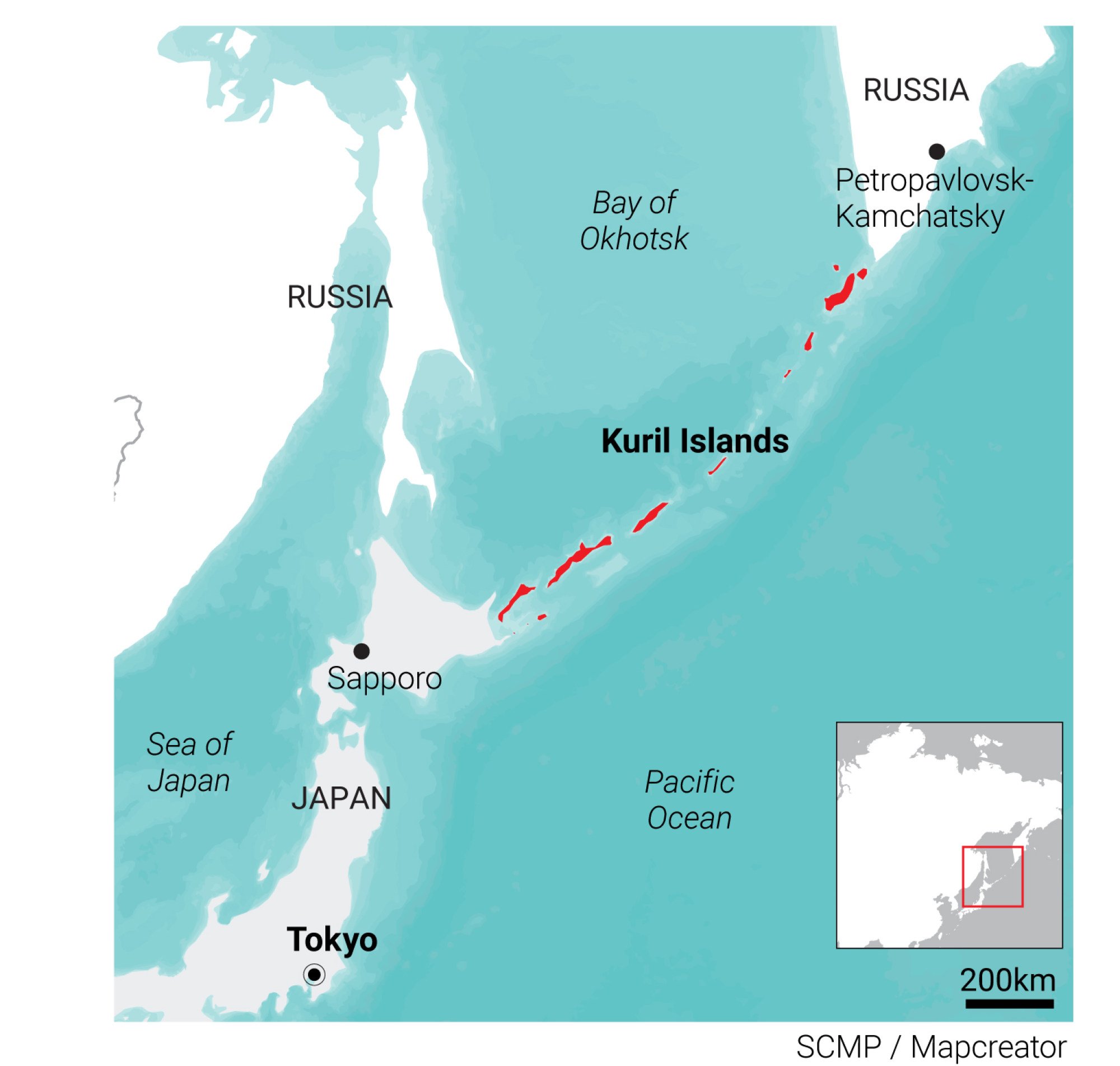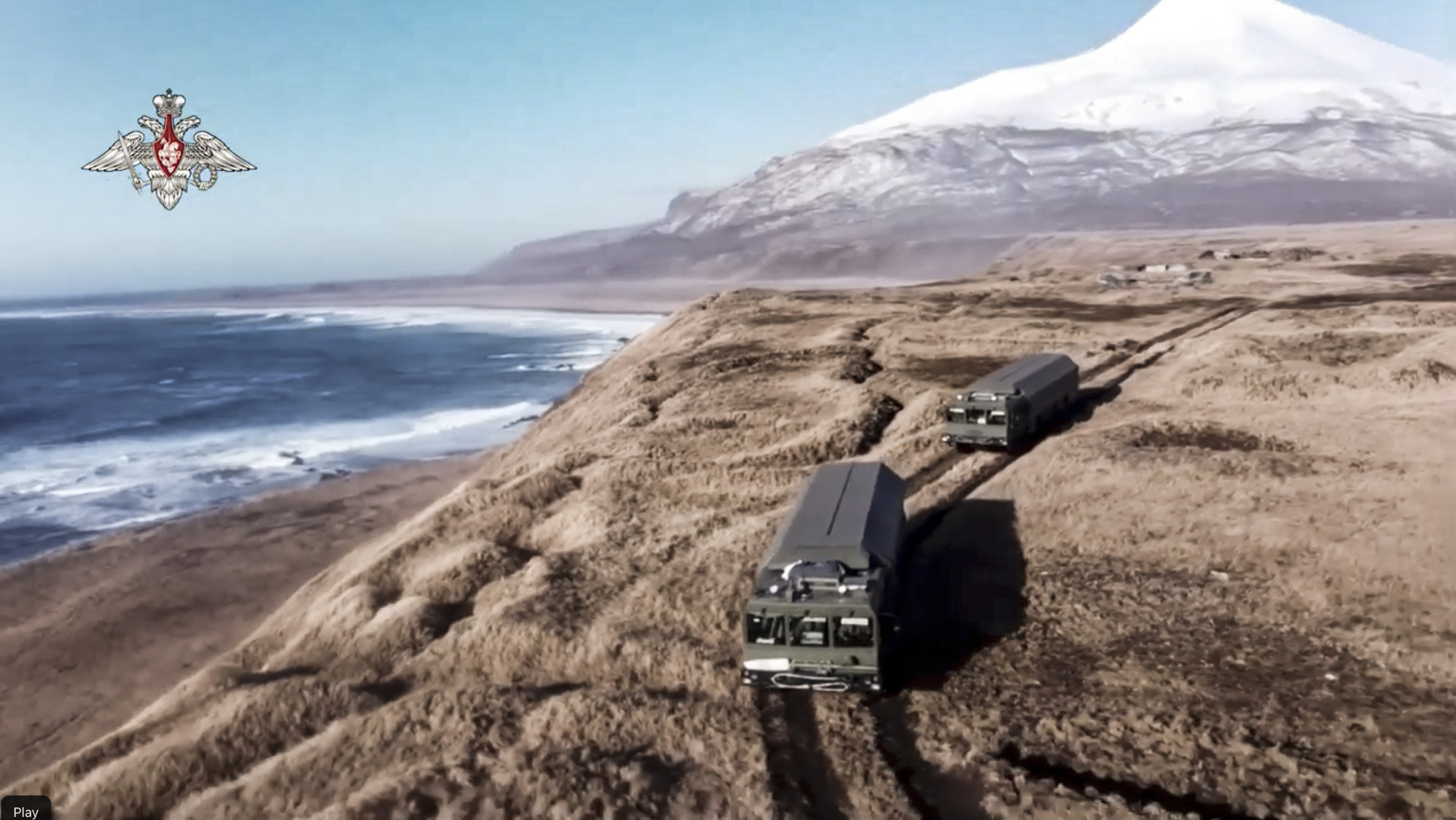
Russia’s Vladimir Putin ‘giving two fingers to Japan’ with pledged trip to disputed Kuril Islands
- Putin says he plans to visit the Kurils, known in Japan as the Northern Territories, and would consider building up the travel sector there
- Territorial rows have long plagued ties, and Japan’s support for Ukraine is just another reason for Russia to hit back against an ‘unfriendly state’, analysts say
In a town hall meeting in the Khabarovsk region that was broadcast on state television on Thursday, Putin responded to a question about visiting the Kuril Islands, which are known in Japan as the Northern Territories.
“I have heard that [the Kuril Islands] are interesting, but unfortunately I have never been there,” Putin said. “So I will definitely go.”
Replying to another query about the possible development of the travel sector on the islands, the Russian leader said it would be the “right direction”. One potential area of development would be the modernisation of the airport on Kunashiri Island, he said.

The islands of Kunashiri, Shikotan, Etorofu and the Habomai islets were controlled by Japan in 1945, and were home to communities of farmers and fishermen. Virtually all of them were expelled after Soviet forces landed on August 18, three days after Japan had surrendered to end the war.
“But in doing so, he is also obviously giving two fingers to Japan,” he added. “I do not believe a visit to the islands by Putin will make the relationship any worse than it is right now, but we will have to watch what he does if and when he does travel to the island.
“If Putin goes there and repeats that the islands are Russian territory, then that is not very different from what has been said before,” he said. “But it would be more significant if he proposes or orders specific development of the islands.”
11 things you may not know about Asia’s territorial disputes
Announcing the construction of major port, airport or military facilities on the island would be a shift in the status quo in the region, as would investment in infrastructure to enhance the economic viability of the region.
“I also see Putin’s comments as designed to appeal to his domestic audience,” Hinata-Yamaguchi said. “This shows the Russian people that they are not backing down in the West, and that they are equally able to stand up when they are confronted in the Pacific.”
James Brown, a professor of international relations who specialises in Japan-Russia affairs at the Tokyo campus of Temple University, says Putin’s plan to visit the disputed islands was “revenge” against Japan.

“But each time that Japan adds some support for Ukraine, Russia feels it has to respond and find ways to annoy Japan,” he said, pointing out that Foreign Minister Yoko Kamikawa has been in Ukraine this week, where she met President Volodymyr Zelensky and reiterated Tokyo’s support.
“Russia’s message is that for anything that Japan does, there will be consequences,” Brown said.
As a consequence, the two countries have never signed a peace treaty to formally end the war.
The likelihood of progress on the issue has been dramatically dimmed by the outbreak of the war in Ukraine, with Tokyo antagonising Moscow with its support for Ukraine and the international coalition that is supporting Kyiv.
Japan’s ‘anti-Russian course’ makes a WWII peace treaty ‘impossible’: Moscow
Japan in 2022 redesignated the islands as being under “illegal occupation”, and in June the foreign ministry in Moscow announced it would revoke an agreement that permitted Japanese fishermen to operate in waters around the islands. Moscow has also cancelled an agreement that granted visas to the Japanese descendants of former residents who wished to return to tend their ancestors’ graves.
In March last year, Russia deployed Bastion coastal defence missile systems to Paramushir, an island in the northern part of the chain. Defence Minister Sergei Shoigu said the deployment was designed to improve regional security to counter US efforts to “contain” Russia.

